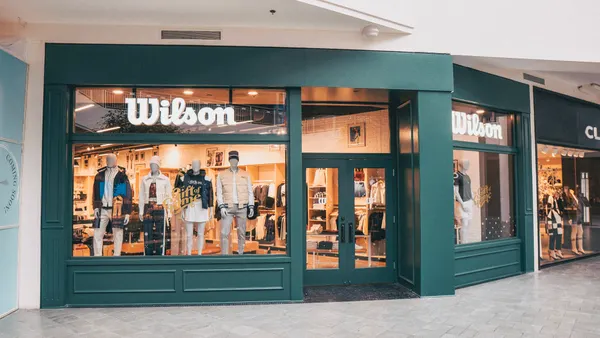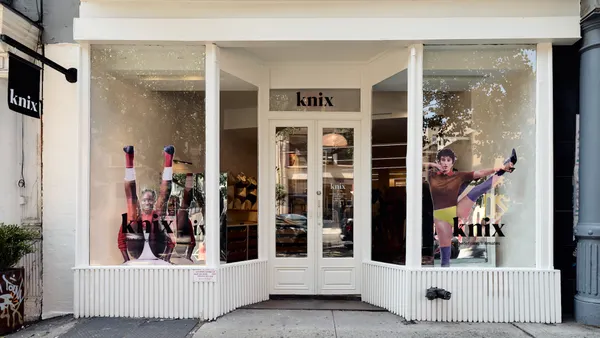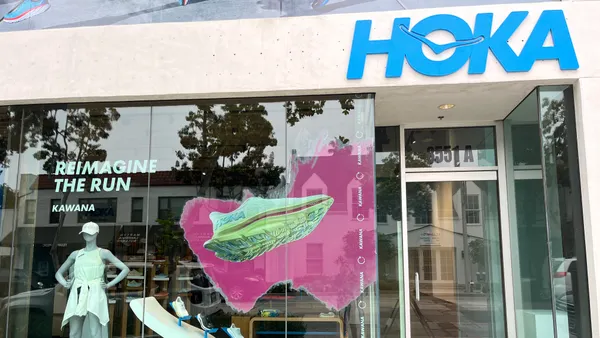Dive Brief:
-
Walmart is closing the pricing gap with Amazon, according to a study by retail data analytics firm Market Track, conducted for Reuters, which analyzed the prices of 213 products in 11 categories over a period of 700 days, ending Nov. 7. The year before, Walmart's online prices were, on average, 3% higher than Amazon's; this year, by contrast, prices at Walmart.com are just 0.3% more expensive, according to the study.
-
In some categories, Walmart beats Amazon, including in wearables (like fitness trackers and smart watches) where Walmart.com's prices are 6.4% lower than Amazon's this year, compared to 12.6% higher in the same period a year ago. Similarly, Walmart's prices on sports and outdoor products are now 1.3% lower than Amazon's, compared to 3.5% higher a year ago, according to the Reuters report.
-
The study matches up with similar research from e-commerce analytics firm Profitero last month, which found that, on average, Walmart's prices were just 3% higher than Amazon's across 13 categories; Walmart was priced lower than Amazon in beauty (the only category where it actually beat Amazon) and came close in sports and outdoors, and baby products, Profitero found.
Dive Insight:
The recent price studies reveal an intensifying price war between Walmart and Amazon, at a time when Amazon has somewhat moved away from competing on price. For example, prices on common school supplies during the back-to-school shopping season were, on average, 15% more on Amazon than on other sites, according to analysis from Chrome deal-hunting extension Wikibuy.
Many consumers continue to expect that Amazon's prices will be the best online deal, largely because much of Amazon's successful disruption of the retail marketplace came from undercutting traditional retailers on price (notably books in its first retail foray). That early, stark price competition with brick-and-mortar retailers has largely dissipated, as many now price-match.
Amazon spokeswoman Kate Scarpa told Reuters that the e-commerce giant has stuck with its pricing approach. "Amazon's prices are as low or lower than any other retailer and we work hard for customers to ensure that's true every day," she said, declining to comment further to Reuters on any pricing strategy.
But it's clear that Walmart is leaving little to chance when it comes to defending its founding "always low prices" promise. "We are committed to having online prices that meet or beat prices at other top sites," Walmart spokesperson Dan Toporek told Reuters. Toporek declined to discuss strategy further, but earlier this month, a Walmart spokesperson told Retail Dive that some prices on Walmart.com are higher than in stores. "It simply costs less to sell some items in stores," the spokesperson told Retail Dive in an email.
The recent research suggests that neither Walmart nor Amazon may have much wiggle room if they're going to compete on price.
"This year there's been a marked rise in discussion about an online price war," Keith Anderson, Profitero Senior Vice President of Strategy and Insights, said of Profitero's study in October. "We've set out to illuminate the pricing dynamic at play and to better understand the high-stakes race to the bottom we're currently witnessing between Walmart.com and Amazon.com. While lower prices are good news for shoppers, suppliers and retailers will inevitably feel the pressure as we head into peak holiday season, as this price war is only set to intensify."
Target, by contrast, is losing ground when it comes to prices, according to Profitero's analysis. The 2014 Profitero study found that mass merchant's pricing to be 10% higher than Amazon, while the latest study found Target to be 16.9% more expensive than Amazon across 15,592 exactly matched products.
But that may be by design. Target is working hard to differentiate its merchandise in several categories, including baby, apparel and home — and other Profitero pricing analysis and studies from other firms are finding Target to be very competitive when it comes to grocery and consumer product goods, Anderson told Retail Dive in an email. By definition, private labels couldn't be compared in the Profitero research. Yet Target's sales from such merchandise have been able to bolster margins amid emerging price wars in consumables and grocery. Last month, Target announced a series of price cuts to those goods — an effort to get the word out that it's willing to play on that field. More recently, executives said that the retailer is hoping to rein in discounts on non-essential items during the holidays.
This story is part of our ongoing coverage of the 2017 holiday shopping season. You can browse our holiday page and sign up for our holiday newsletter for more stories.














